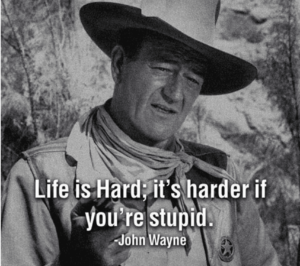G.K.’s New Year’s Advice

“The man of the true religious tradition understands two things: liberty and obedience. The first means knowing what you really want. The second means knowing what you really trust.” – G. K. Chesterton’s Weekly, August 18, 1928
But isn’t it more noble and good to exercise of freedom to discover what our ancestors have on our own ability? I think theoretically the answer is yes. But, is that reasonable to expect anyone one person to discover thousands of years of experience in one lifetime? I think not. Why not trust first and confirm or deny when you have your own experience, like you did when someone taught you how to drive?
Against from Chesterton:
In the matter of reforming things, as distinct from deforming them, there is one plain and simple principle; a principle which will probably be called a paradox. There exists in such a case a certain institution or law; let us say, for the sake of simplicity, a fence or gate erected across a road. The more modern type of reformer goes gaily up to it and says, “I don’t see the use of this; let us clear it away.” To which the more intelligent type of reformer will do well to answer: “If you don’t see the use of it, I certainly won’t let you clear it away. Go away and think. Then, when you can come back and tell me that you do see the use of it, I may allow you to destroy it.[1]
Each passing year brings you more experience in life. Can we not also say that it brings more collective experience for mankind if individuals hand it on [traditio]?


